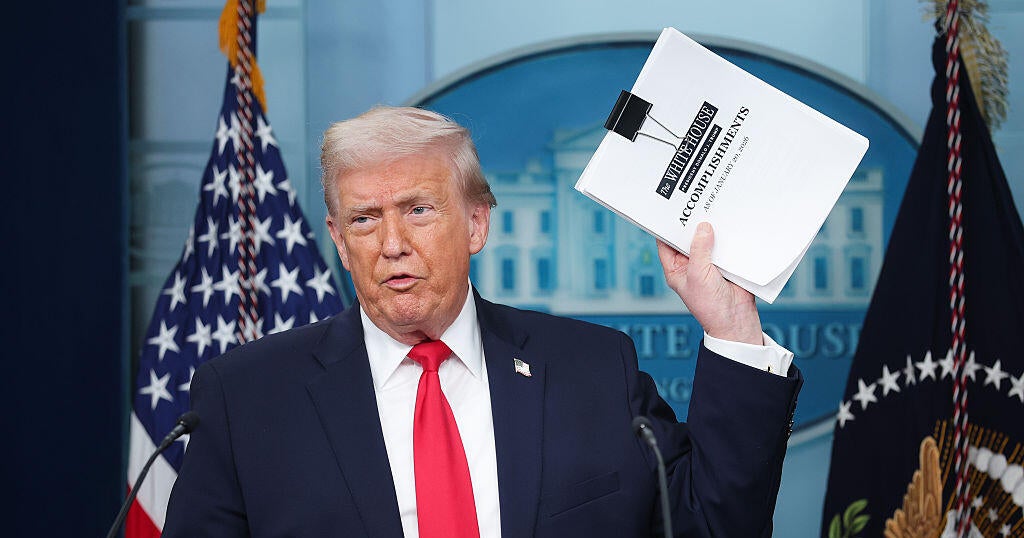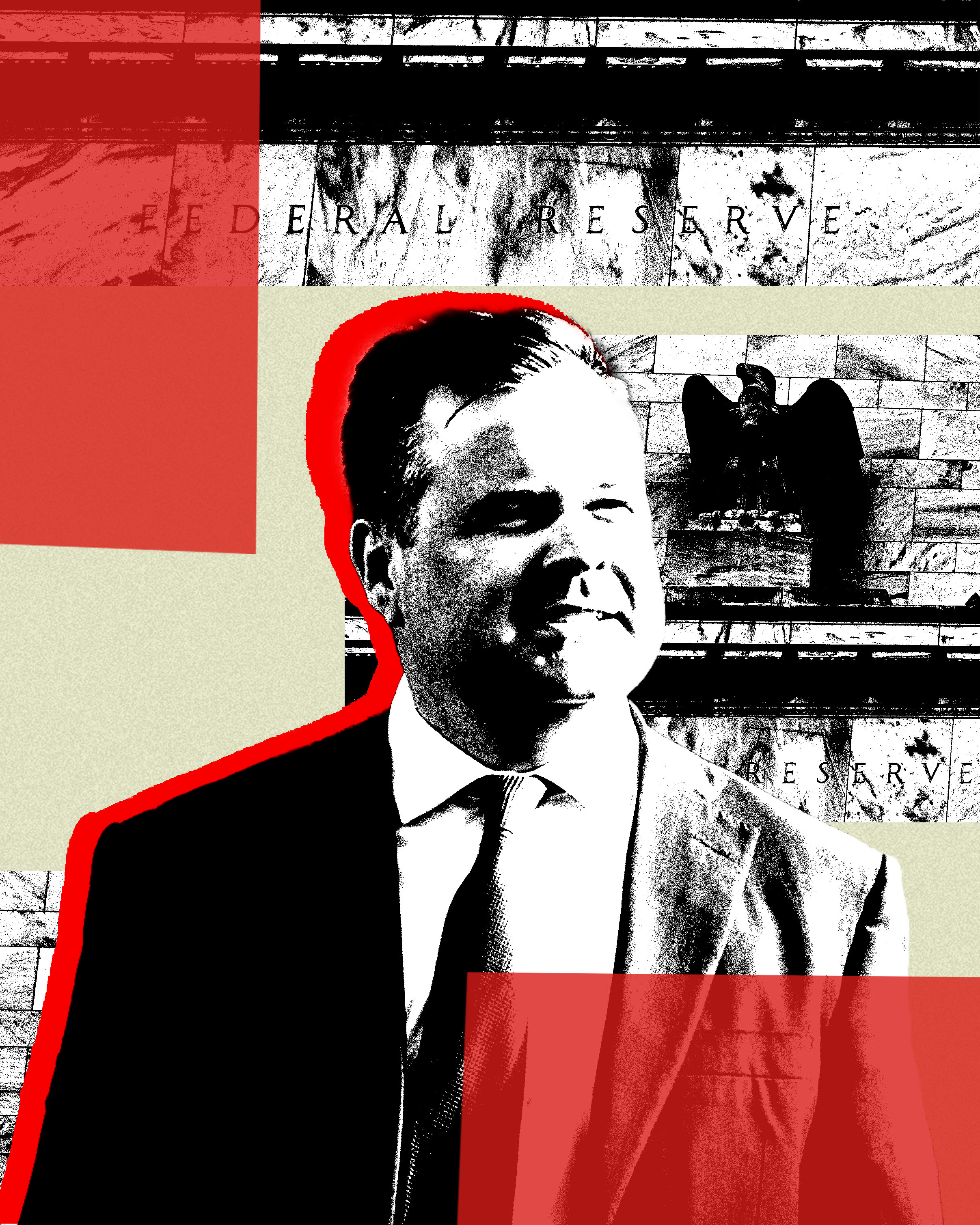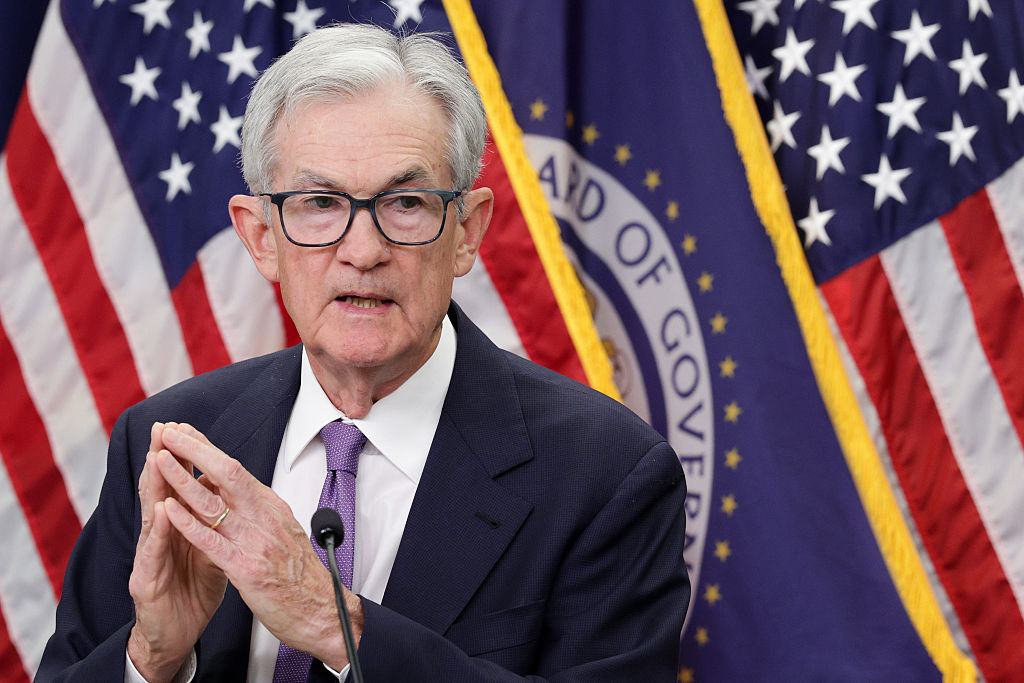Would Powell exit Fed chair if Trump fired him? "No," he tells Congress
- Federal Reserve Chairman Jerome Powell began two days of testimony to Congress on Wednesday amid heightened criticism of his tenure by the man who named him to the job: President Donald Trump.
- "What would you do if the president calls you and said, 'I'm firing you. Pack up. It's time to go'?" he was asked. "My answer would be no," Powell said.
- In his written testimony, Powell points to troublesome trade and growth "crosscurrents" that have "reemerged" since the Fed's May meeting.
- But relentless pressure from President Trump for a Fed rate cut could complicate matters for a central bank that prizes its independence.
Every sentence Federal Reserve Chairman Jerome Powell speaks to Congress this week is sure to be parsed by investors who expect -- and hope -- the Fed will cut interest rates later this month for the first time in a decade. Powell hinted strongly at a cut in testimony Wednesday before the House Financial Services Committee, saying: "Since our May meeting, however, [growth and trade] crosscurrents have reemerged, creating greater uncertainty."
"Growth indicators from around the world have disappointed on net, raising concerns that weakness in the global economy will continue to affect the U.S. economy," Powell continued. "These concerns may have contributed to the drop in business confidence."
Powell began two days of testimony on Wednesday at a time when the economic picture seems mixed: The U.S. job market appears resilient. Consumer spending and home sales look solid. But the economy is likely slowing. President Donald Trump's trade wars have magnified uncertainties. And inflation remains chronically below the Fed's target level.
Powell and the Fed have made clear they'll do whatever they deem "appropriate" to sustain the economic expansion -- a message Wall Street traders have interpreted to mean a coming rate cut. Indeed, when the Fed's policymakers met last month, they removed from their statement a reference to being "patient" about interest rates. Some Fed watchers have suggested that cutting rates this month would serve as a kind of insurance policy by the central bank against a potential economic downturn in the fall or early next year.
"The power to fire"
Powell testified Wednesday to the House Financial Services Committee and is set to speak Thursday to the Senate Banking Committee as part of the Fed's semi-annual monetary report to Congress.
Committee members Wednesday questioned Powell about his willingness to cut rates, with many Democrats pointedly asking about the unusual pressure Mr. Trump has applied to the Fed. The president has repeatedly accused Powell of keeping credit too tight for too long and of thereby holding back the economy and the stock market, and the president's counselors maintain that he has the power to fire the chair while claiming that no firing is forthcoming.
Asked Tuesday about Powell's status, White House counselor Kellyanne Conway told reporters Mr. Trump has made clear his unhappiness with the Fed's rate policies and believes "he has the power to fire Jay Powell, but he hasn't done that. He's not doing that."
Committee chair Maxine Waters put the issue front and center Wednesday, asking: "If the president called you, today or tomorrow, and said, 'I'm firing you. Pack up. It's time to go,' what would you do?"
"Of course, I would not do that," Powell replied.
"I can't hear you," Waters replied, eliciting laughter in the hearing room.
"My answer would be no," Powell said, a touch louder.
"And you would not pack up and you would not leave?" Waters pressed.
"No ma'am," Powell said.
Asked if he believed the president had the authority to fire him, he said, "What I've said is that the law clearly gives me a four-year term and I intend to serve it."
Some economists have suggested that if the Fed surprises the markets later this month by choosing not to cut rates, it might be because Powell and other Fed policymakers don't want to be seen as having caved to Trump's relentless pressure.
On Sunday, Mr. Trump asserted that if the Fed "knew what it was doing," it would cut rates. That accusation followed his contention Friday that the central bank "doesn't have a clue" and is "our most difficult problem."
Expecting a rate cut
Investors, as tracked by the CME Group, have assigned a 100% likelihood to a rate cut when the Fed meets in three weeks. Until very recently, the chance of a modest quarter-point cut was put at 70% and a steep half-point cut at 30%. The Fed's key rate, which influences many consumer and business loans, now stands in a range of 2.25% to 2.5%. Investors still see a 100% likelihood of a rate cut this month. But nearly all now foresee only a quarter-point move.
That change reflects two developments.
First, Mr. Trump and Chinese President Xi Jinping declared a truce last month in what had threatened to become an escalating U.S.-China trade war and agreed to resume talks toward a deal that would meet the administration's demands to better protect U.S. technology. That step eased fears that Mr. Trump would extend punitive tariffs to an additional $300 billion in Chinese goods, in the process inviting retaliation from Beijing on American exports and likely weakening both nations' economies.
Second, after a tepid job gain in May, U.S. employers sharply stepped up their hiring in June, an indication of the economy's durability despite the trade pressures.
However, as Powell noted Wednesday, "crosscurrents" concerning trade policies and global growth have reared their head: "Apparent progress on trade turned to greater uncertainty, and our contacts in business and agriculture report heightened concerns over trade developments," his testimony stated. "Growth indicators from around the world have disappointed on net, raising concerns that weakness in the global economy will continue to affect the U.S. economy."
-- CBS News' Irina Ivanova contributed to this report.





